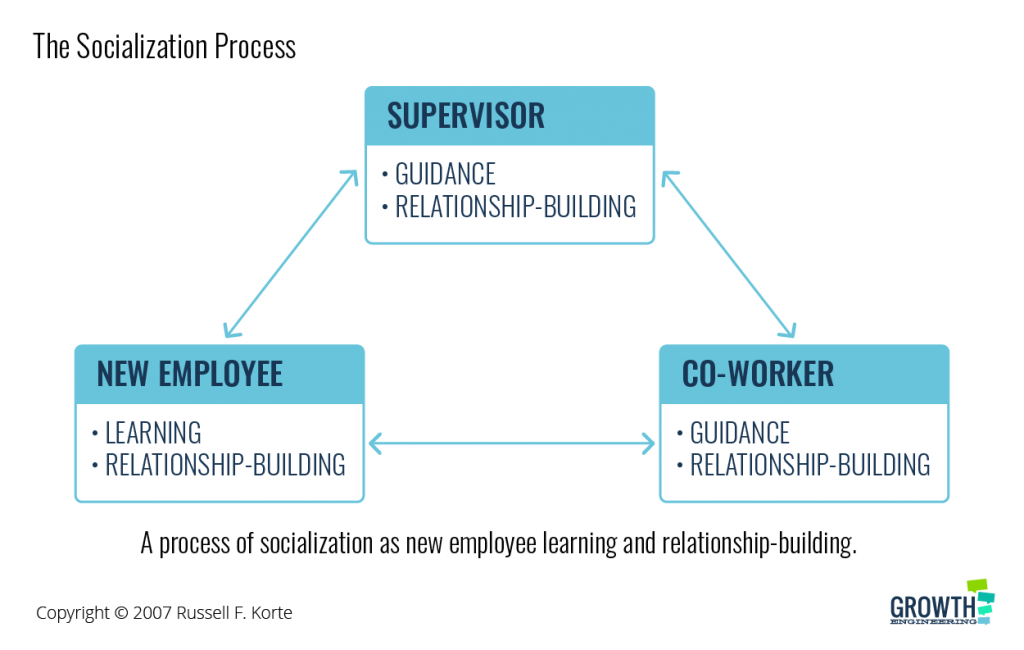Culture Fix How To Create A Great Place To Work
What is company culture? Or corporate culture… or organizational culture..?
You hear the words frequently, but how do you define the culture of a business? How can you measure your culture and how can you improve it?
In this article, we explain what organizational culture is and why 82 percent of senior business managers believe that culture can provide a competitive advantage.
After that, we'll give you 17 insightful tips on how you can improve your company culture that will do wonders for your organization!
Here we go…
- What Does "Organizational Culture" Mean?
- Examples of Organizational Culture
- Why is a Strong Company Culture Important?
- 17 Best Tips to Improve Company Culture
What Does 'Organizational Culture' Mean?
Organizational culture refers to the personality of an organization. It relates to the day-to-day beliefs and behaviours of a set of employees within the same work environment. This includes:
- how they act and engage with the organization,
- the values they ascribe to these actions,
- their personal goals and how these fit in with the goals of the organization,
- and how employees engage with each other at work.
It relates to how well employees understand the company's mission, vision and goals. This means that every employee in the organization should know what the company wants to achieve. But, these organizational goals should also align with their own individual goals.
This is important, but it's a fact that's often overlooked. It's not enough for employees to do their tasks because "that's just my job" or "I need to make money somehow".
The route to employee engagement is a two-way street! Your employees need to know that any organizational growth will result in personal growth and professional development.
Examples of Organizational Culture

Every company has a different culture. For example, some companies are more collaborative and have a team-based culture. This means that people within the organization work together to achieve their goals.
Other businesses will have a company-wide approach in which everyone has their own goals and targets, and they work on their own to get them done.
On the other hand, some companies are more formal. They expect you to come to work in a power suit and stick to your set hours carefully. Other companies will have a different approach and let you wear whatever is comfortable and manage your time yourself.
That said, here are some more types of organizational cultures:
- Some companies are in silos, others are highly interdependent.
- Many businesses will be sales focused, others client-focused, others still employee focused.
- Forward-thinking companies will have a knowledge-sharing culture , in which employees take responsibility for sharing their knowledge. Others have a centrally driven formal learning strategy.
- Businesses can have dramatically different approaches to technology. Some will be early adopters and innovators, others will be cautious.
These examples don't define the company culture entirely, but they feed into it and shape it. It's not necessarily the case that one culture is better than another, but simply that every organisation has its own unique culture.
PS: Here's a peek at the culture we have at Growth Engineering!
Why is a Strong Company Culture Important?
A strong corporate culture helps even large organizations work like a well-oiled machine. Similarly, it is where every employee knows their values and acts in-line with their company's values .
Human Resources will find it easier to engage employees with a good corporate culture behind them. This is because everyone in the company will know the company's expectations.
When everyone from senior management downward is rewarding behaviours that contribute positively to the culture, it becomes deeply embedded in the company. Hence, organizational culture is a long-term investment, but it pays off.
- A Deloitte study confirms that 94% of executives and 88% of employees believe a distinct culture is important for the success of a business.
- Companies with a strong culture exhibited 20% higher employee satisfaction ratings for collaboration, environment and values.
A Strong Company Culture Makes Teams Resilient to Change
Today's modern workplace has been evolving at pace. This has been brought about by unprecedented events such as the Covid-19 pandemic. As a result, companies worldwide have needed to adapt to new work arrangements such as virtual workplaces or remote working . Luckily, there are ways to keep your company culture alive even when your organisation is working remotely!
A strong company culture unites remote teams working in different locations or time zones. With a great culture, your people maintain the camaraderie and values required to keep them moving towards your shared goals.
They are brought together by your company's singular vision and purpose. In turn, you can be confident that your company can handle any change that comes your way.
Company Culture Improves Your Work Environment
An organization with a clearly defined culture is a more pleasant place to work. The company culture will give everyone shared assumptions that help everyone know what's expected of them. In turn, this makes for a more enjoyable social and psychological environment.
When everyone knows how to behave, it makes it easier for everyone to get along nicely. It also reduces friction in the workplace. Similarly, when everyone knows what's expected of them, it removes any uncertainty or ambiguity from their role. This is important for the mental well-being of your wonderful employees!
Great Company Culture Can Improve Quality of Work
When the culture isn't as strong, the alignment to company values isn't quite so clear. This means that more effort needs to be placed in controlling employees, monitoring their behaviour and keeping them working as efficiently as possible.
The advantages of company culture are obvious. It means that less monitoring is required by managers and team leaders and that the work of the employees is of a higher value to the company. For instance, you won't have to use tracking or monitoring devices. You just need a clear set of objectives and goals. This means that company culture helps improve organizational performance!
Corporate Culture Makes Onboarding More Effective
A company with a clear culture will be able to easily induct new employees into the company's set of beliefs. It encourages ways of working that cohere to the company's business objectives and visions as a whole.
Employees in a company with a good culture are more engaged, motivated to succeed and display more loyalty. This can make them less likely to leave the company and make them more likely to become an advocate of your company.
Organizational Culture Breeds Teamwork
An increase in group cohesiveness is one of the most powerful by-products of a good organizational culture. Employees know where they stand within their teams and they trust everyone else to do a good job. Team members also feel valued and that their contribution is important to the success of the business.
Company Culture Makes Hiring People Easier
Everyone wants to work for a company with an amazing culture. It's one of the big draws of superstar companies like Google and Facebook. In fact, a study shows that 98% of companies consider cultural fit an important part of the hiring process .
Company Culture Dials Up Informal Learning
With a greater focus on collaboration and teamwork, you also create opportunities for informal learning to occur. In any work environment, only 10% of what your employees learn comes from the formal training content. They pick up the rest on the job and by interacting with their colleagues. The more training your employees receive, the better they become at doing their jobs and the more successful the company will be.
This all combines to create a good team working environment and a community of engaged employees. Clearly, a good and desired culture is something to aspire to. Not only does it nurture a pleasant working environment, but it improves engagement between employees, teams, departments and the organization as a whole.
What's not to like?
Hopefully, we've convinced you enough. Now, let's get on to the best part of this article. Here are 17 sure-fire tips to help you create the best company culture for your employees!
17 Best Tips On How You Can Improve Company Culture
1. Listen to your Employees
Provide your employees with an environment to let their opinion be heard. Listen for ideas, listen to ease conflicts, listen to help create an even better company culture!
Internet giant, WordPress, regularly holds 'Town Hall' meetings where these ideas are exchanged between management and lower-level employees. By listening to your employees, you earn their trust and support.
- 75% of employees would stay longer at an organization that listens to and addresses their concerns
- 65% of employees who don't feel they can approach their manager with any type of question are actively disengaged
2. Communication is Key

Effectively communicate your organization's mission statement, vision and values. This helps create the sense of having a shared goal and shifts your employee's mindset from being a cog in a machine to a key part of the team! But don't let effective communication be a one-sided affair. Encourage active communication across your organisation! This increases the strength of employee-employer relationships, and can help diffuse conflict.
- Only 1 in 150 employees who say their organization does not have a set of values are fully engaged
- Employees who say their organizational values are "known and understood" are 51 times more likely to be fully engaged, than an employee who responds that their organization does not have values that are known and understood
- 25% of Millennials say their top career goal is to "make a positive impact on my organization"
3. Collaborate Don't Isolate!
Encourage collaboration between employees to reinforce the idea that you are a team.
A culture of collaboration highlights the freedom for individuals and teams to practice active communication and knowledge-sharing . This helps to break down departmental silos, and creates an openness to share ideas and learnings.
Your LMS should be equipped with a vibrant social feed where learners can offer support to each other and overcome challenges together!
- 86% of employees and executives cite lack of collaboration or ineffective communication for workplace failures

- Social collaboration tools are used by 80% of businesses to improve business processes
4. Be Transparent!
Transparency with your employees is a way of building trust. A lack of transparency can breed a culture of secrecy and mistrust, which is very damaging for any organisation. When employees are trained in a culture of transparency, this creates a cycle of trust extending to customer transactions. People prefer to buy from brands they trust.
A weekly post on an LMS social feed about what's happening at a corporate level will inspire your team.
- 50% of employees say bosses sharing information and data has a significantly positive impact on productivity and motivation
- Studies shared by Forbes show employees consider transparency to be the number one factor in determining workplace happiness
5. Follow the Leader!
Organizational culture needs to be nurtured. And, culture starts at the very top of the ladder!
Leaders need to visibly demonstrate that they buy into the organization's core beliefs. You could do this with a video of your CEO at the beginning of your training programme.
- 89% of workers with leadership support are more likely to recommend the company as a good place to work
- 35% of Millennials say strong leadership defines a good work culture
- 52% of HR pros cite management buy-in as the biggest barrier to strengthening culture
6. Provide Regular Feedback!
Employees need regular and balanced feedback if they are to align their performance with your organizational culture. A once a year meeting just isn't good enough! You should praise the behaviour that matches your values and develop areas that need improvement. Keep on top of things with regular reporting and you'll soon be working in tandem!
- 68% of employees who receive accurate and consistent feedback feel fulfilled in their jobs
- 89% of HR leaders believe peer feedback and regular check-ins enhance organizational culture
7. Epic Meaning!
You should look to our awesome friend Epic Meaning if you want to see improvements in your organizational culture! It's not enough to buy commitment from employees. They need to believe they're working towards some higher purpose.
Provide your learners with immersive training content and you'll soon all be pulling in the same direction!
- 88% of businesses are seeking to improve employee engagement
- Highly engaged employees are more than three times as likely to do something good for their company that is not expected of them
8. Implement Gamification

Rekindle the glory of your company culture by turning dull training materials into fun activities for your employees!
Gamification will keep employees' motivation levels up, and learners coming back for more. They'll be hunting down badges and XP to claim bragging rights over their colleagues on the leaderboard! This makes for the perfect environment to reinforce your organizational culture! But what do we know? We're only the #1 providers for a gamified LMS!
- Research by the Aberdeen Group discovered that organizations who deploy gamification improve engagement by 48%
- By 2025 , gamification in workplaces will majorly appeal to millennial employees.
- 95% of employees enjoy having gamification elements in their work
9. Reward Your Employees!
Reward your employees for actions that best represent the organizational culture that you seek. A recognition-rich culture will also reduce turnover, giving your organizational culture longevity. So what are you waiting for? Get rewarding your employees!
- Companies that score in the top 20% for building a 'recognition-rich culture' have a 31% lower voluntary turnover rate
- 90% of HR managers agree that having an effective recognition and reward programme helps drive business results
10. Lay Down a Challenge!
Provide challenge and opportunity for development. This lets your employees know you are invested in them. In turn, they will be loyal to your organizational culture.
Providing challenges also increases job satisfaction as employees gain better confidence in their skills and abilities.
- 76% of millennials think professional development opportunities are one of the most important elements of company culture
- Employees who get the opportunity to continually develop are twice as likely to say they will spend their career with their company
11. Encourage Social Learning!

Get your employees to participate in promoting your company culture. Through the right social learning platform , employees can feel empowered to learn and share information with each other.
Did you know that 20% of learning takes place by observing others? Get new employees onboard with your awesome culture with the help of their peers. With the power of social learning , new information is easily shared.
Behaviours are also easily learned, without the need to practise them. Increased participation means increased engagement. A win-win for your employees and your organisation!
- Social learning approaches have a 75:1 return on investment over traditional web-based training
- 58% of L&D professionals want to introduce social learning to their online learning technologies
- The top two methods where the average employee learns the most are 'Experience on the Job' (45%) and 'Networking' (30%)
12. Build Fun Memories & Rituals
 Ever heard of the saying "all work and no play makes Jack a dull boy?" Don't let dull Jacks haunt your workplace. You should take care to ensure your office, or remote working space is fun and engaging. Use games and team-building activities to energise your teams. Celebrate each others' successes. Hold competitions. Encourage breaks. There's a lot you can do to create good vibes around your workspace. This will earn your organisation more brownie points and help to further your organizational culture.
Ever heard of the saying "all work and no play makes Jack a dull boy?" Don't let dull Jacks haunt your workplace. You should take care to ensure your office, or remote working space is fun and engaging. Use games and team-building activities to energise your teams. Celebrate each others' successes. Hold competitions. Encourage breaks. There's a lot you can do to create good vibes around your workspace. This will earn your organisation more brownie points and help to further your organizational culture.
One way to do this is through social clubs where people can socialize and build friendships. Don't let a remote workspace stop an awesome bonding opportunity! Infuse gamification techniques into these social clubs to bolster employee bonds and help forge fun memories.
- Numerous studies confirm the strong influence of emotions on learning and achievement. Hence, nurturing positive emotions in the workplace brings out the best in your employees, aided by increased motivation and satisfaction
- Emotional events (such as very fun memories) are remembered more clearly and for longer periods of time than neutral events
- Friendships in the workplace make you seven times more engaged in your job
13. Embody a Flexible Work Culture
Adopting a flexible work culture has been found to improve employee morale and productivity .
Cultures based on mutual trust thrive! By incorporating flexibility and agility in work schedules and patterns, this sends the signal that you trust your employees. In turn, this encourages loyalty, and increases engagement and motivation levels.
- Mckinley research shows that 55% of employees expect flexible working practices to be part of their benefit package
- People in high-trust companies report 74% less stress, 106% more energy at work, 50% higher productivity, 13% fewer sick days, 76% more engagement, 29% more satisfaction with their lives, and 40% less burnout
- Having a flexible work culture builds a positive image, leading to higher ROI in recruitment and retention
14. Embrace Diversity & Inclusivity

Nurturing a diverse and inclusive workplace promotes a culture centered on honoring differences with dignity and respect. This makes everyone feel comfortable and welcome.
To really promote diversity, it isn't enough that you simply acknowledge differences. It's about recognizing the value of each employee, their unique attributes and individual contributions. By implementing interventions that reduce discrimination and cognitive bias , this also helps promote inclusiveness.
When you do this, you can truly attract and leverage the knowledge and skills that a diverse workforce can bring to your organisation.
- Companies who provide equal opportunities for all and hire for diversity report 18.5% increased annual return than companies who don't
- Research shows that companies with the most racially diverse workforce bring in 15 times more revenue than companies with the least racially diverse teams
15. Socialize New Starters
If you thought that formal onboarding programmes were enough, then we need to talk! Getting new employees familiar with your company culture requires much more than this. In fact, the heart of company norms isn't done through formal learning. They are learned through informal exchanges between new employees and co-workers.
This is where the importance of the socialization process comes into play. It highlights the influential role of co-workers & supervisors in effectively socializing newcomers.

- Research finds that first impressions endure . This is even more true when it comes to groups. Now is the time to put your best employees out there to socialize with your newcomers. By doing so, you increase the chances of creating the best impression possible with the help of your team!
- Employee retention is increased by 82% with a great employee onboarding programme
- 58% of organisations focus their onboarding on processes and paperwork. Don't be part of this statistic. Focus on your employees and their need to quickly get onboard with the company and your culture!
16. Protect Employee Wellbeing

Happy employees are the trademark of what makes a fantastic company culture. By cultivating a work environment centered on employee wellbeing, you create an atmosphere of trust and support. When employees feel cared for, they become more engaged and committed to your company's values. They could even become your cultural brand ambassadors, rallying team spirit and communicating values to their fellow colleagues.
- An increased sense of wellbeing raises productivity by 31%, and inspires 59% more loyalty among employees
- 60% of employers see the positive impact of employee wellbeing programmes on employee retention. 61% believe that it improves engagement and overall productivity
Bonus Tip: If you want to create a culture you can be proud of, these tips are a great start… But our 70:20:10 Tipsheet is the perfect resource to help you understand how you can use social learning to take the next step to transform your organisation. Grab your copy of The 70:20:10 Tipsheet here!
17. Build a High Performance Learning Culture
Behind every successful business is a high-performing organisation invested in their teams' learning and development. In fact, top companies are five times more likely to have extensive learning cultures compared to low performers.
To build a high performance learning culture is to develop employees who are highly engaged and proactive in their development goals. It is also a culture where teams actively take part in knowledge sharing and social learning .
This is where the Transformation Curve framework comes in handy. It provides an L&D roadmap on how you can transform your training goals and processes. With a high performance learning culture, there is no stopping your company from reaching its full glory!
- 86% of employees believe in the value of being provided learning opportunities by their employers
- Employees in high performance companies engage in knowledge-sharing four times more than those in lower-performing firms
- Employees supported in their learning by their companies are 83% more likely to feel happier in their job
The Final Word
The bedrock of a successful business is a strong team, powered by a great company culture. Even more so given today's modern workplace, defined by global & diverse teams, increasing uncertainty, and evolving work trends. This is why it is no surprise why many companies find it a challenge to create and maintain the right culture which would sustain the business in the long run.
Hence, this article acts like a formula to help you push forward towards organisational success. All you need to do is create an environment (physical or virtual) where your team can flourish. With these top tips, you can get started on building the culture of your (company's) dreams. Start envisioning a rockstar workplace supported by active and continuous learning now.
Ready to take your company culture to the next level? Start by applying the power principles of Social Learning!
Download Our Social Learning White Paper Here
Culture Fix How To Create A Great Place To Work
Source: https://www.growthengineering.co.uk/improve-organizational-culture-10-quick-tips/
Posted by: bestliffeent75.blogspot.com


0 Response to "Culture Fix How To Create A Great Place To Work"
Post a Comment